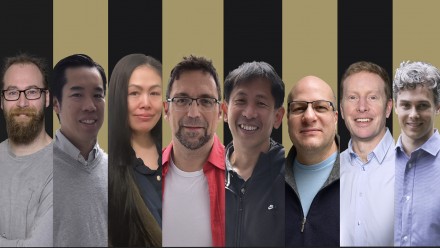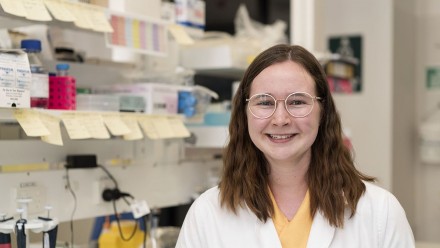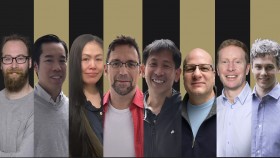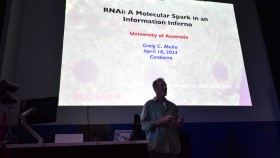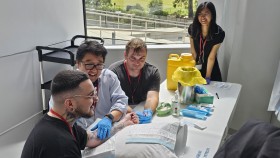A Rhodes Scholar on her path to change the world, one protein at a time
When Emily Rowland was four years old, her teacher asked her what she was most interested in. You might expect a typical answer to this question to be something like ‘lego’, ‘dogs’, ‘The Wiggles’, maybe even ‘drawing’.
But for Emily it was “the brain”.
Since then, not much has changed. Expect now she is on her way to studying a Master of Neuroscience at Oxford University as South Australia’s Rhodes Scholar.
“I've always been fascinated by Alzheimer's disease,” says soon-to-be Bachelor of Philosophy (Honours) graduate Emily Rowland.
“Not just because curing Alzheimer’s disease will help so many people, but also because if we understand Alzheimer’s better we can start understanding a lot of other neurological disorders as well.”
Emily also attributes her honours research project at the ANU John Curtin School of Medical Research (JCSMR) on how brain signals convert to physical movements for inspiring her aspirations as a neuroscientist.
“The UK is highly regarded as the place for neuroscience, so I think studying a Masters at Oxford University will provide a solid grounding for my career,” she says.
“I'm hoping to combine neuroscience with another field called structural biology, which looks at the 3D structure of biological molecules like proteins.”
By combining these fields, Emily hopes to make a lot of progress that will help people around the world.
“Structural biology can be really good in designing therapeutics and new drugs, because you can actually rationally design a drug to act exactly how you want it to on a protein,” she explains.
“If we start looking at proteins in your brain and seeing how they function, and how different drugs target those proteins, it gives us a whole lot of information that we're currently missing.”

Emily has only just finished her Honours in neuroscience at ANU, where she investigated the relationship between the brain, and the mechanics of how our bodies convert brain signals into physical movements.
“You’ve probably heard that the brain works via electrical impulses, but when I'm moving my hands it's not an electrical phenomenon, it is mechanical movement.
“There has to be some way for that electrical signal to be converted into mechanical movement, and that's the process I looked at.”
Emily is set on learning as much as she can before she embarks on her journey to change the World for the better.
“My degree at Oxford will give me both depth and breadth in neuroscience, which is helpful when trying to combine two fields.”
Although keen to develop her skills in neuroscience, there is something else that Emily is most looking forward to.
“The Rhodes Scholarship provides you with a community of diverse people that are working towards one broad common goal, they all really want to change the World and the field that they're working in,” she says of the world’s oldest and possibly most prestigious scholarship.
“I could end up talking to someone practicing humanitarian law, or someone studying economics, or any field that I know literally nothing about, and we could have a really awesome conversation about how they're changing the World for everyone.
“That's what I think the Rhodes Scholarship is all about, and that's what I'm most excited about.”
If you are searching for a neuroscience degree closer to home, we suggest looking into our own Master of Neuroscience.
Story by Elsie Percival







